A bridge, 130 convictions and a 30-year fight: The tolls that made criminals of islanders
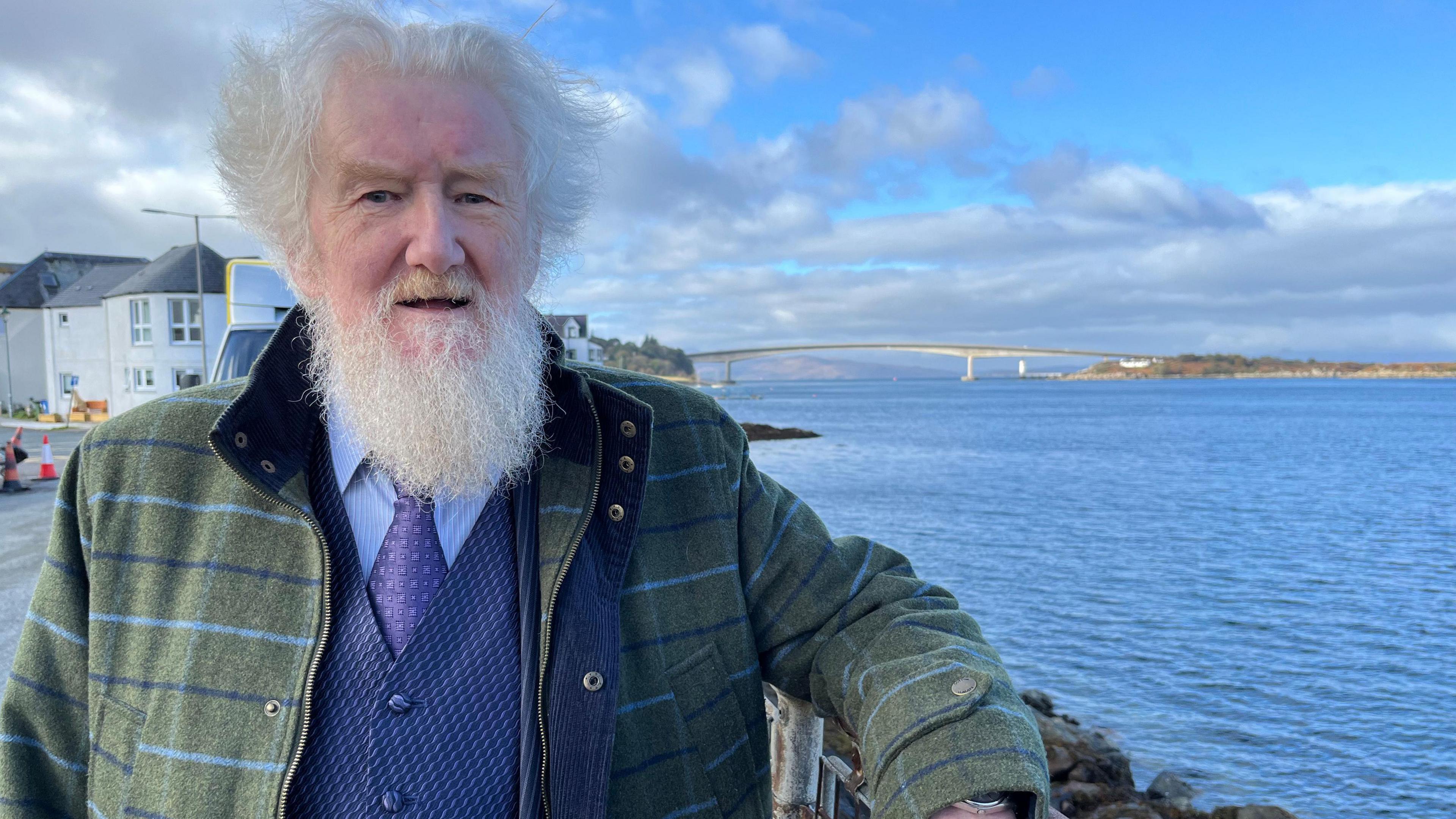
Robbie the Pict has campaigned against the Skye Bridge toll for 30 years
- Published
When the Skye Bridge opened exactly 30 years ago today, motorists were charged £4.70 to drive their cars one way over the crossing.
It led to high-profile and often ingenious protests by some islanders, with some even spending time in prison for failing to pay the fine for non-payment.
Now, more than 20 years after the Scottish government bought the bridge and cancelled the tolls, campaigners are calling for their convictions to be scrapped.
Prominent campaigner Robbie the Pict said the convictions should be quashed as a matter of principle.
"I've got 130," he told BBC Scotland News. "On 130 occasions I refused to pay the toll - I've never paid it."
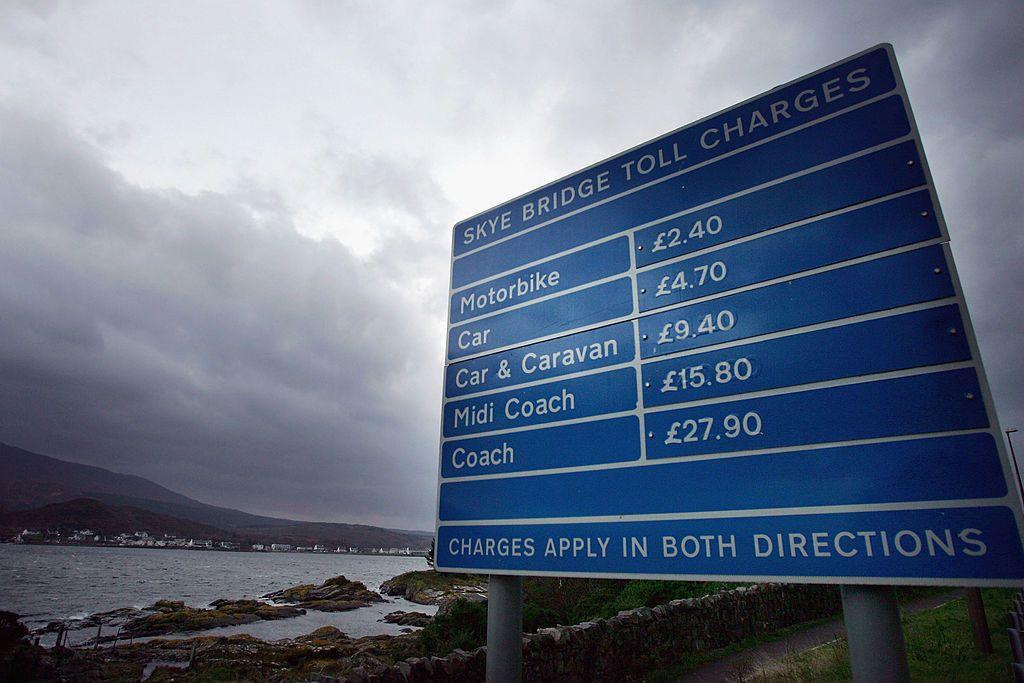
Cars were charged £4.70 to cross the bridge during the winter; it rose to £5.70 during tourist season
The £20m bridge opened on 16 October 1995, in place of a ferry service which had run between the island village of Kyleakin and the Kyle of Lochalsh.
It was hoped that the 500m (546 yard) crossing would make the island more accessible and help boost its economy.
The bridge was built under the private finance initiative (PFI) and the tolls were set up so the bridge company could recoup its investment.
But the price of a one-way crossing, which soon rose to £5.70 and was said to be the most expensive in Europe, caused anger among the local community and led to almost a decade of protests.
By comparison, at that time motorists were charged 80p to cross the Forth Road Bridge which connected Edinburgh and Fife.
Protest with a flock of sheep
Protests co-ordinated by Skye and Kyle Against Tolls (Skat) drew in islanders from all walks of life and attracted international attention.
On its opening day, the first motorists arrived at the tollbooths in their cars and refused to pay.
Dozens of cars followed, and driver after driver refused to pay the toll.
Several hours later, after refusing to leave, the protesters were charged and reported to the procurator fiscal.
Other protests involved driving flocks of sheep across the bridge, while others paid their tolls in pennies.
Hundreds of people refused to pay, with some facing 100 or more criminal charges.
In total, 130 people ended up with criminal convictions, and some spent time in prison because they refused to pay the fines.
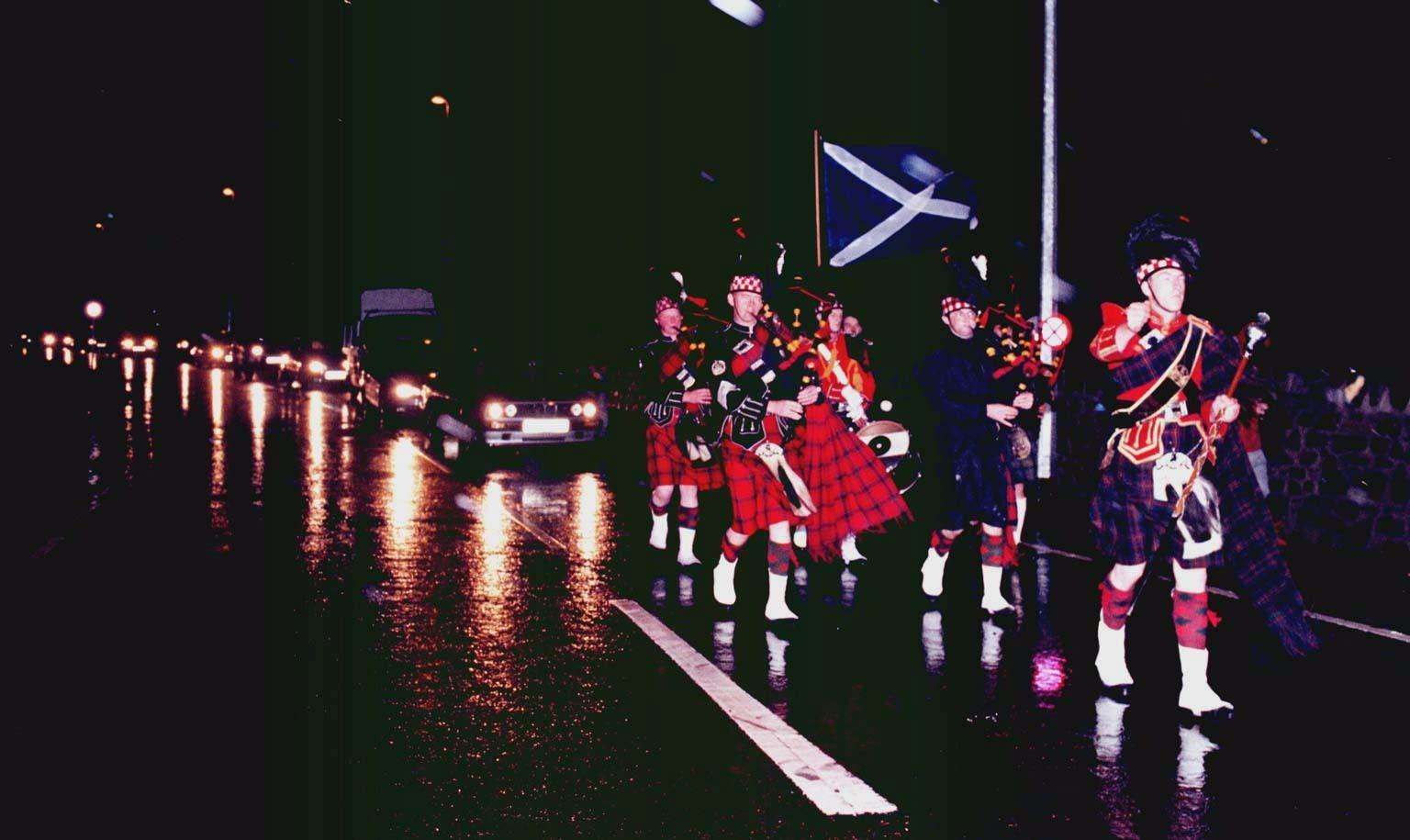
Bagpipers led a midnight motorcade protest across the bridge in 1995
Robbie the Pict, who legally changed his name from Brian Robertson and founded the mini state of "Pictland" on an acre of land in Skye in 1977, led the protests.
He said the convictions were more of a "nuisance" than anything else, and said they should be quashed as a matter of principle.
"There needs to be some form of public inquiry so that these convictions can be quashed and so that people can have their record as a decent citizen properly restored," he said.
"The matter must be pursued. It's not over yet."
'I'm not going to go away'
He said the convictions had affected some protesters' ability to travel.
"People would arrive in New York and get asked if they had any criminal convictions.
"They were refused entry to America as a traveller for a fake tolls conviction," he said.
Despite the passage of time, he said he was as motivated as ever in his campaign.
"We've reached base camp at Everest and we are ready for the push," he said.
"I'm rejuvenated every time the problem is re-recognised because the problem is not going to go away, I'm not going to go away.
"We're not the people who should've been criminalised."
The Scottish government finally bought the bridge in 2004 for £27m and cancelled the toll, making the bridge free to use.
Local people celebrated with a huge Hogmanay party on both sides of the bridge, with fireworks lighting up the sky.
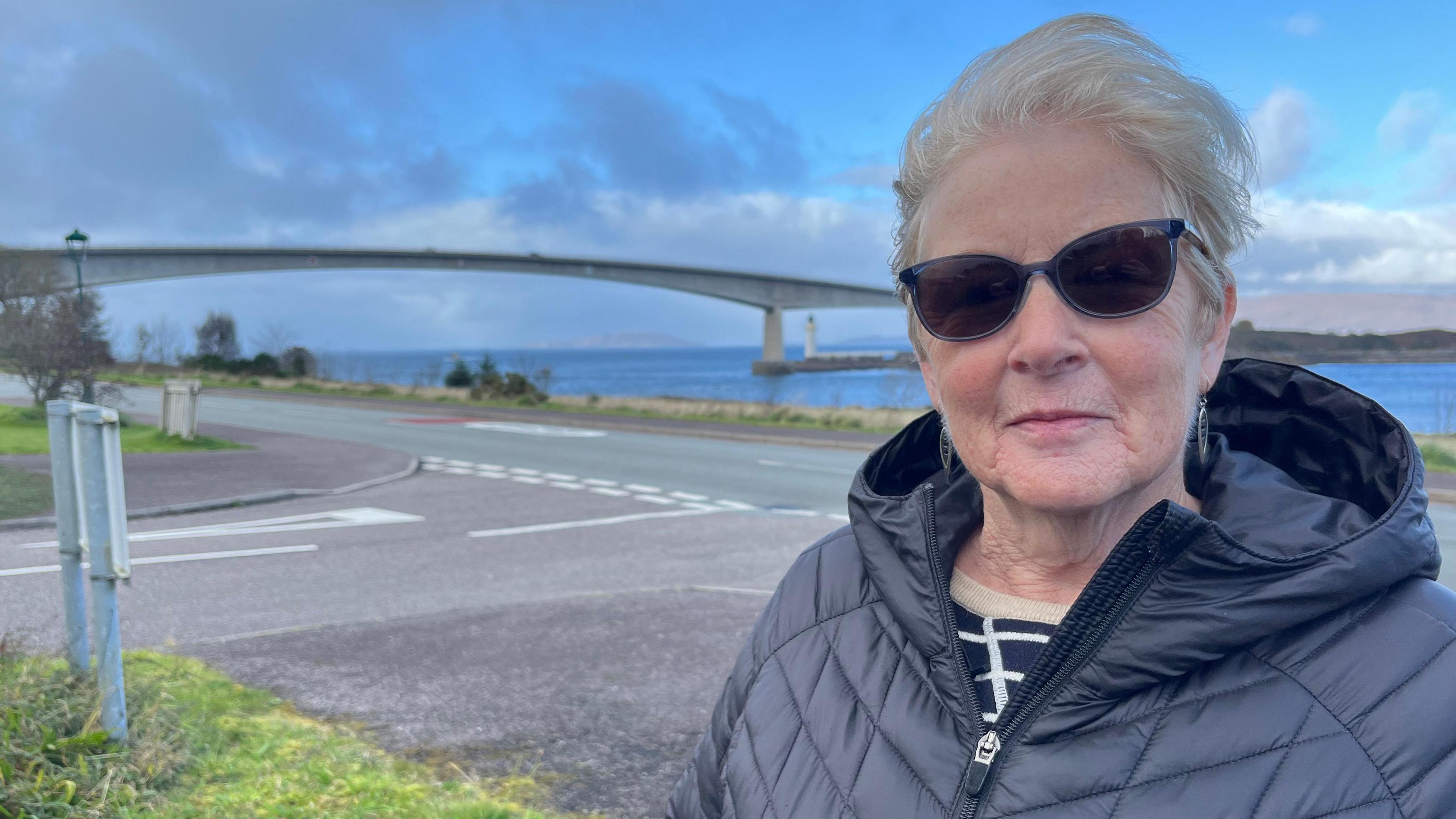
Caroline Clouston said the bridge has brought more positives than negatives
Caroline Clouston, who ran the village shop in Kyleakin and now chairs the local historical society, initially opposed plans for the bridge and later the tolls.
"When the bridge arrived, it made the village a much quieter place because previously all the traffic went through the village," she said.
"Everything revolved around the ferry. Now everything goes the opposite way. It's nicer without all the traffic but business-wise not so good."
Now she says the toll-free bridge has brought benefits to the island, making it more accessible for locals and tourists.
"It's easier for people to get on and off [Skye]. They don't have to sit in a queue [for a ferry] for an hour or two," she added.
"You have to move with the times but it may have made Skye too busy now."
"We just accept it now, it's all part of the village, part of life."
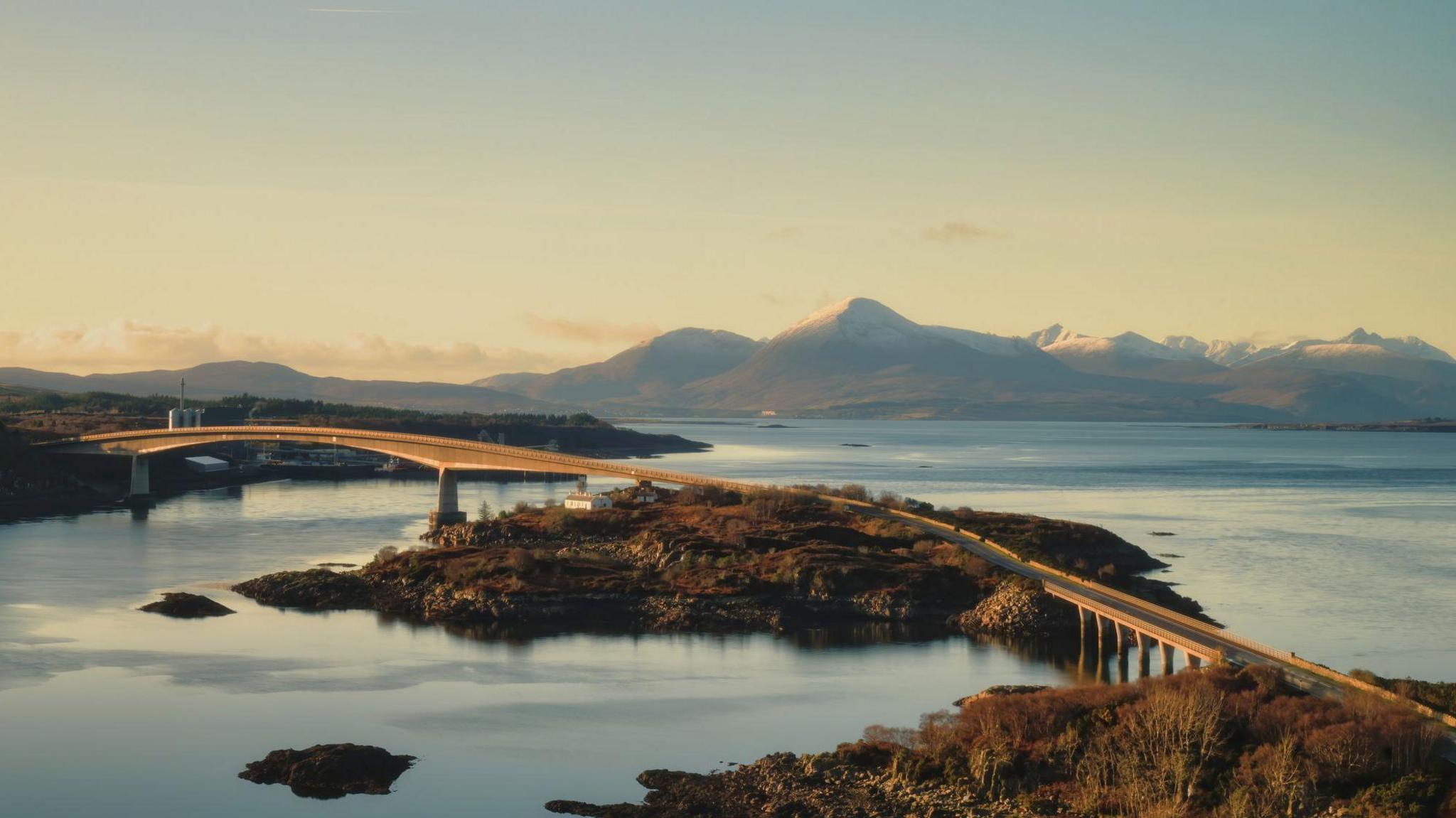
The Skye Bridge opened 30 years ago
A spokesman for the Crown Office and Procurator Fiscal Service said: "The former toll order and tolling regime have been challenged in the courts on several occasions. All such challenges have proved unsuccessful."
A Scottish government spokesperson added that the assignation statement, which transfers rights to another party, was made in accordance with the relevant legislation.
Related topics
- Published22 October 2019
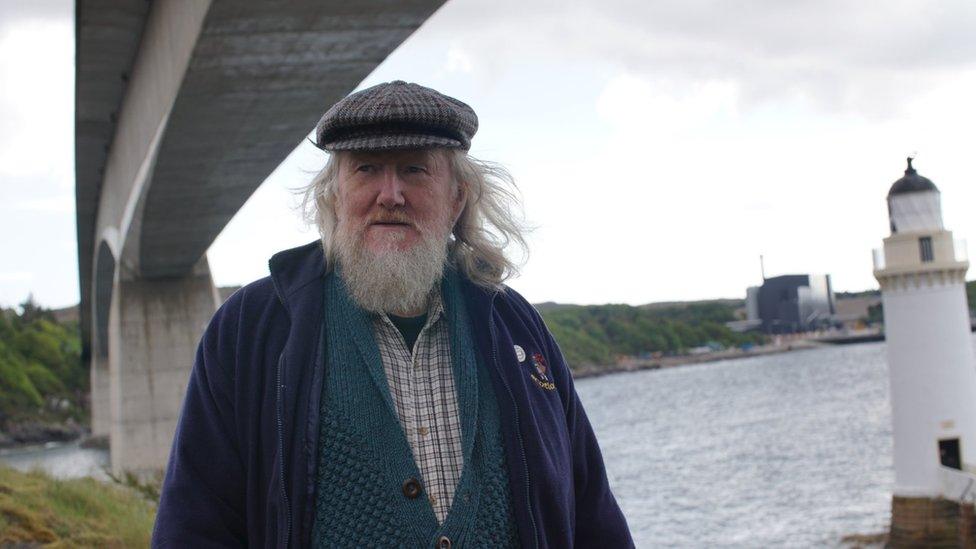
- Published20 December 2012
- Published16 October 2015